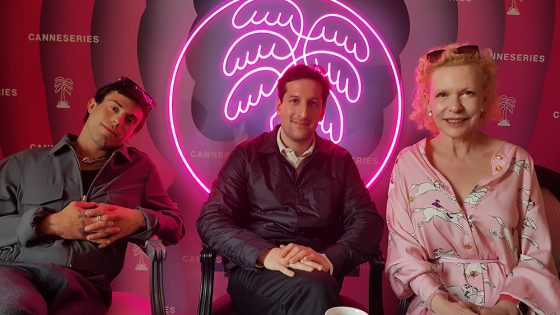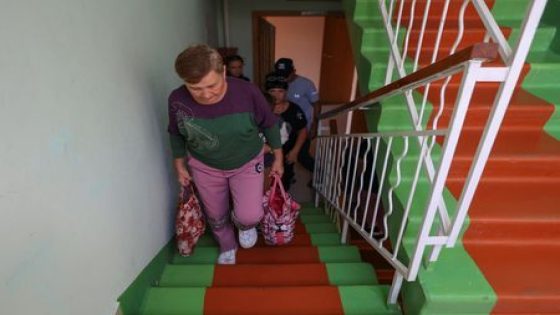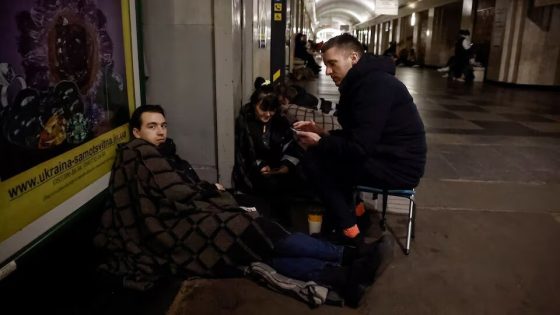Picked by Variety as one of the hottest shows at MipTV, ZDF Studios’ comedy drama “The ‘Zweiflers” about a colourful, dysfunctional yet loving Jewish family in contemporary Germany, had a rapturous reception April 7 at its world screening in Canneseries.
“It was a profound experience to see how much [the Cannes] audience loved it, not only because of the way it was done but because of the subject matter,” said Aaron Altaras (“Unorthodox”), cast as Samuel, grandson of the patriarch Symcha Zweifler (Mike Burstyn), torn between his Jewish origins and his love for his British Caribbean girlfriend and mum-to-be (Saffron Coomber).
“We were so surprised – people were laughing-out-loud,” adds Sunnyi Melles (“Triangle of Sadness”), who plays the glue in the family and Samuel’s mum Mimi. “The series is about a family across three generations, with all its problems, whatever they are. It happens to be a Jewish family, but it could be any family and in fact in the Cannes audience, someone said: I have the same mother – although I’m not Jewish!”
Hadda who was born in Frankfurt from Jewish Polish parents, Holocaust survivors, said for many years he had been obsessed with the idea to draw the portrait of a family.
“My biggest influence was ‘The Sopranos’ and I always said I wanted to do a Jewish ‘Sopranos’! The idea was to change the narrative from the victims’ perspective in Germany to a Jewish patriarch and Holocaust survivor who had lost everything – and everyone, and then came back to rebuild his life. That was empowering for me, said Hadda who co-wrote the six-part series with his wife Sarah Hadda and Juri Sternburg.
Asked how much of the Hadda family is in “The Zweiflers,” he said jokingly: “I don’t know…34.7%! No really, it’s a fictional story, but of course it is filled with anecdotes, memories from colleagues, friends, family members that I wanted to tell. I would say it is emotionally biographical.”
Acknowledging the ambivalence of the Jewish self-image in Germany, he was keen to raise new questions, but also to lace the narrative with humor.
“It is true that you can look at an event with one eye smiling and one eye crying. Humor is a fantastic tool to cope, to survive, but also distance yourself from reality,” he says. “This is what we tried to do with the show.”
In a script packed with knowing details, authenticity was quintessential as well as representation, but not to the point of using an all-Jewish cast.
“I don’t think it’s necessary to always cast or typecast a person with a background,” Hadda comments. “Every film or series has its own universe and here, it was just important to keep it real, at all times.
The Zweiflers
Credit: Elliott Kreyenberg
Therefore, we did not cast only Jewish people. Ute Lemper (“Cabaret”), for instance, plays a major role. In life, she did marry four times and four times with a Jewish husband so perhaps that makes her more Jewish than everybody else,” he quipped.
When offered a part in the series, Altaras said he was initially sceptical.
“All the Jewish films or series I know are about dead people or neurotic people, so I wasn’t interested. But then, I thought maybe this is an opportunity to show something else than concentration camps and Woody Allen stuff. We are all humans, with all our differences. This was a perfect way to depict a wide spectrum of Jewish life and show people that our problems are similar to anyone else’s.”
Melles for her part praised Hadda’s multi-tasking – from show-running to casting, costume and set decoration supervision, that infused trust among cast and crew, and the “amazing” script. “We all know how crucial this is. Billy Wilder, everybody says that. I’ve always wanted to play Shakespeare because it is so great,” she enthused.
Asked whether they felt this contemporary tale of a Jewish family was all the more important to tell at a time when war in Gaza fuels anti-Semitism and Islamophobia, the cast and showrunner were unanimous in their message of peace and mutual understanding.
“Obviously the situation is very chaotic, and being Jewish at the moment feels very strange,” Altaras says. “What is going on is very sad, people shouldn’t die and kill each other. But that’s not what the show is about, necessarily. It’s about letting people decide for themselves what part of their identity is the most important for them, and not being pressured by others and society.”
“Yes, understanding each other is key, and it all comes down to education, to what our parents, not politicians, tell us,” adds Melles, who feels kids should be taught at school about what is being Jewish or Muslim.
For Hadda, “the [Israeli-Palestinian] conflict is old, racism is old, anti-Semitism is very old. “Our series” he says “is first and foremost about compassion.”
According to the showrunner, the series, produced by Turbokultur, is due to air on ARD Mediathek’s streaming service May 3 and ARD’s linear channel May 10.
ZDF Studios handles global sales.
Source Agencies




